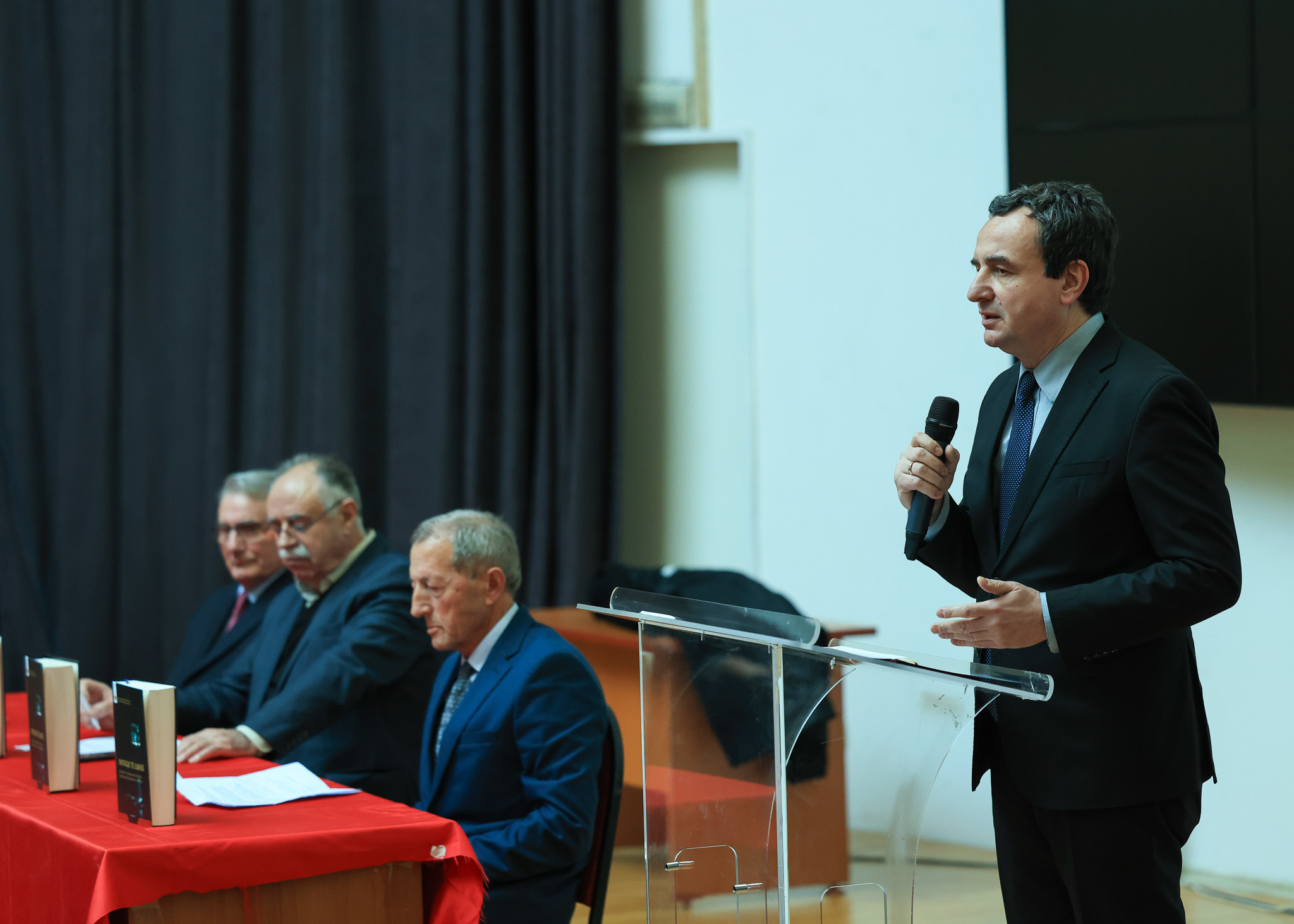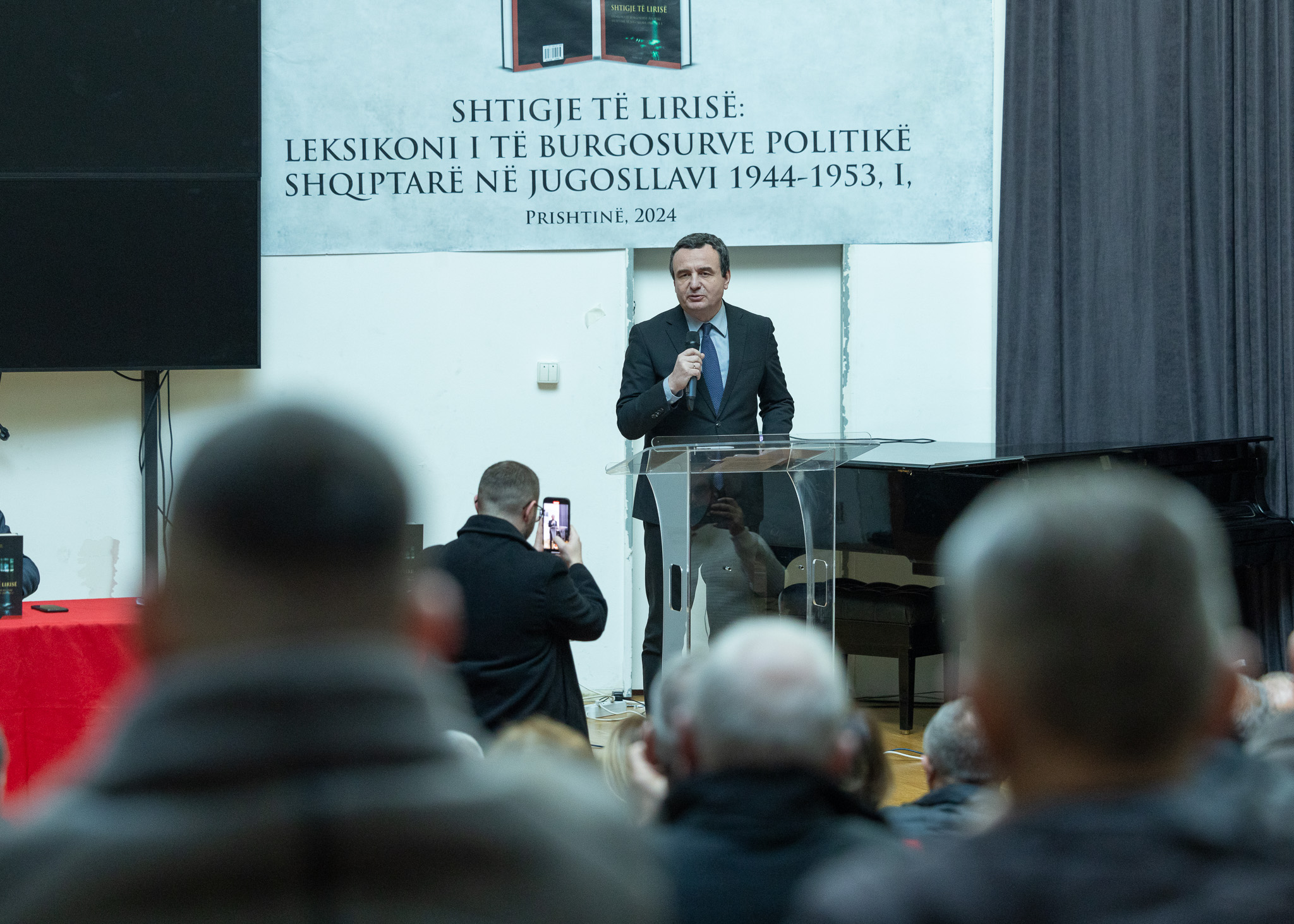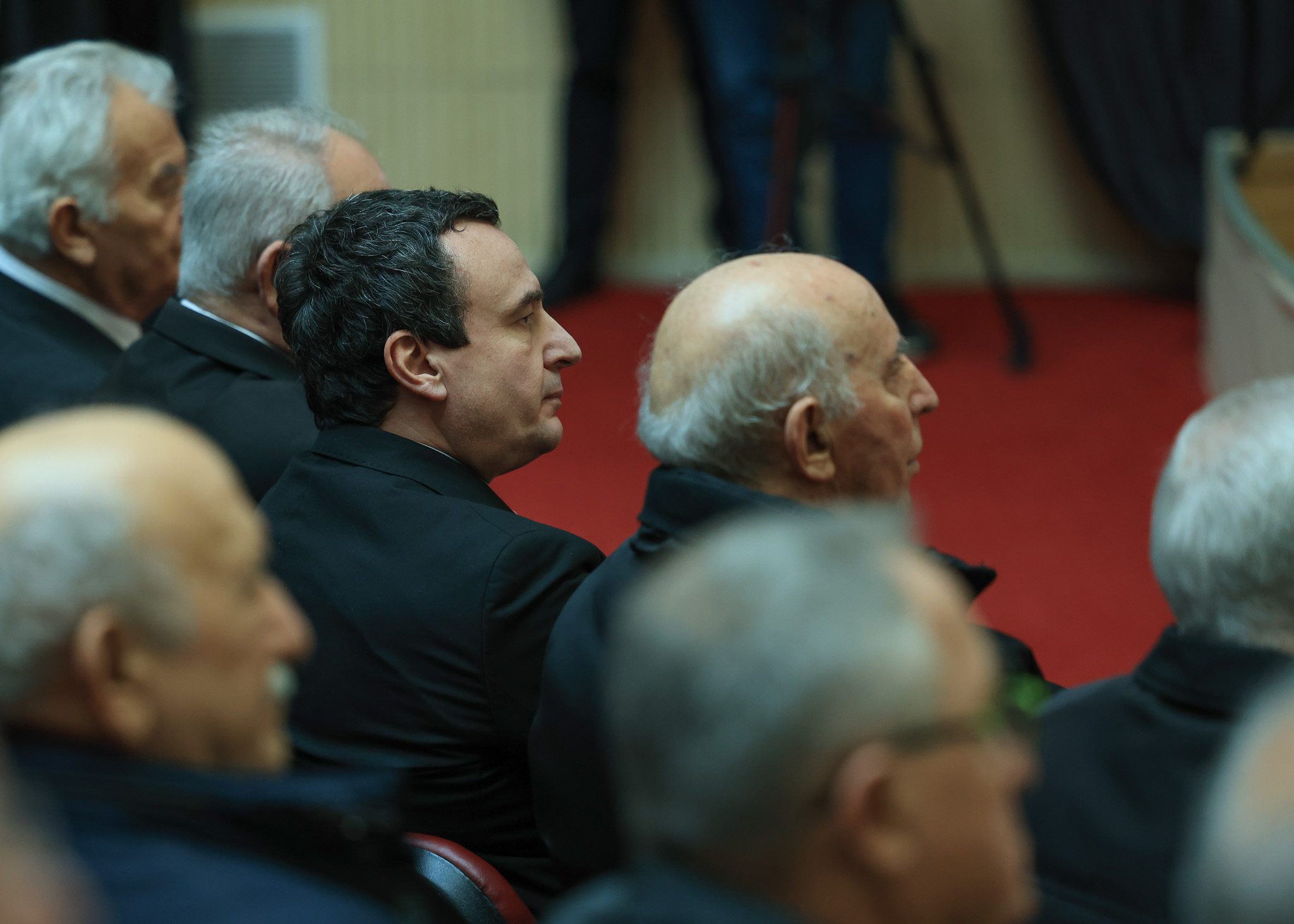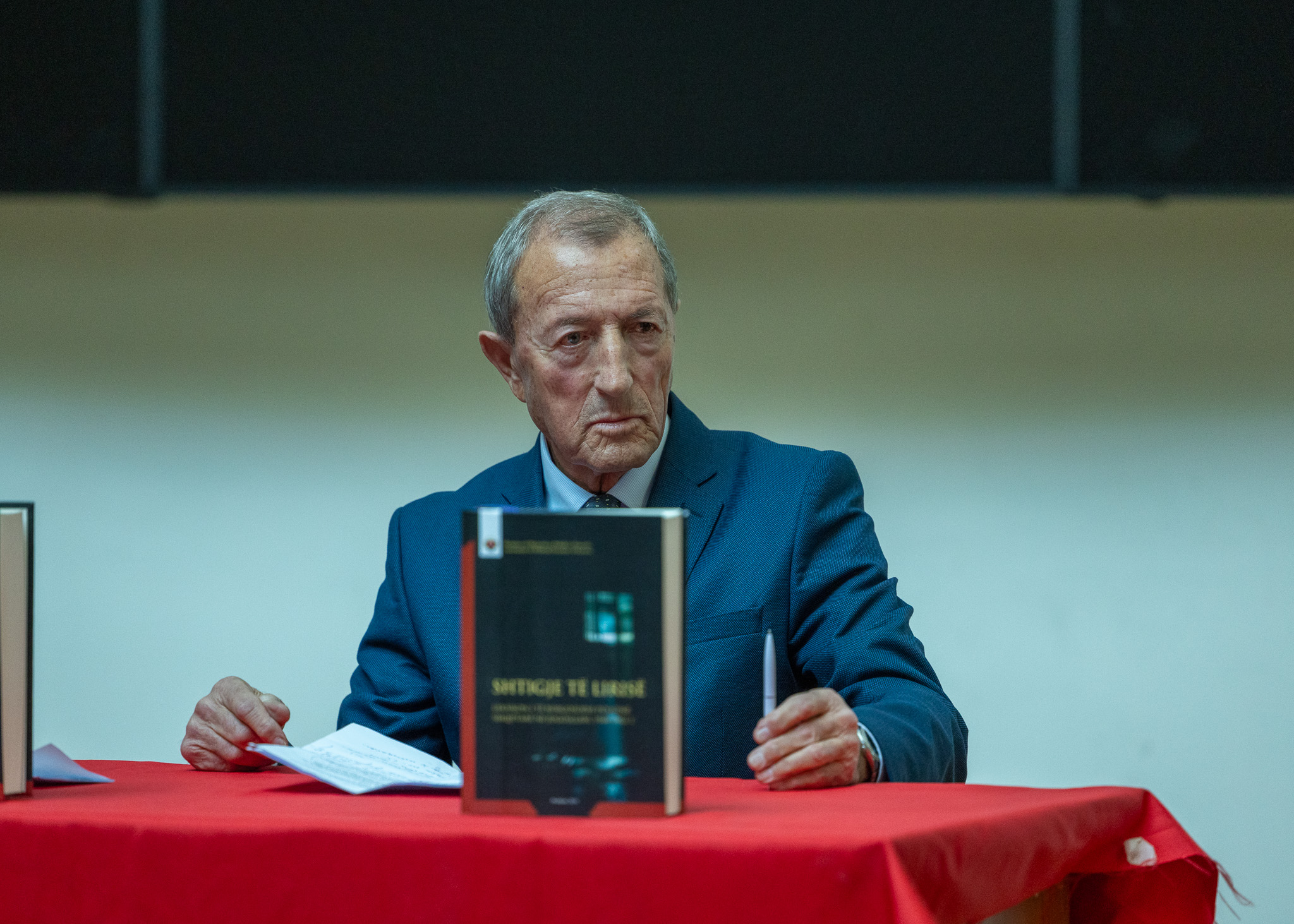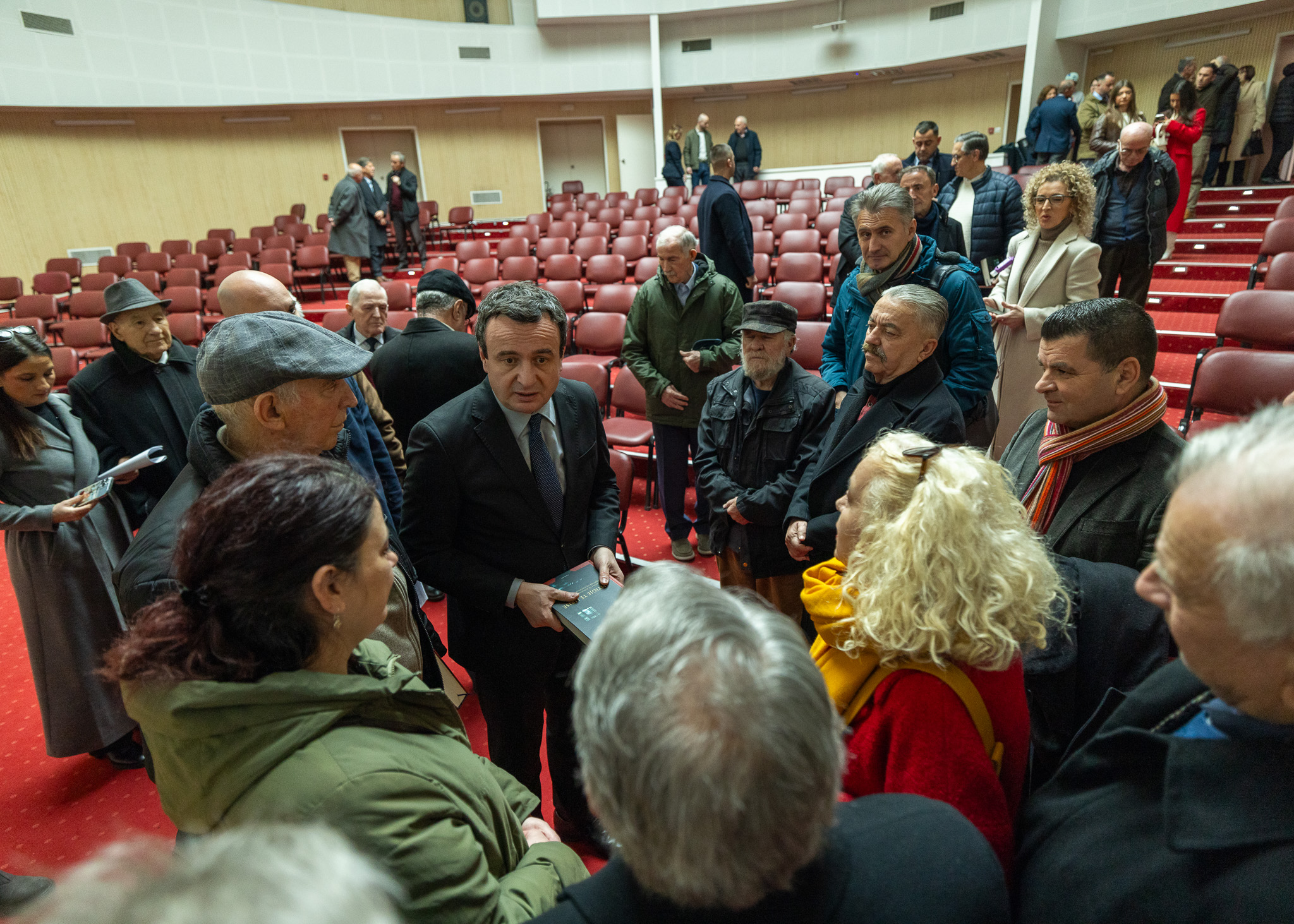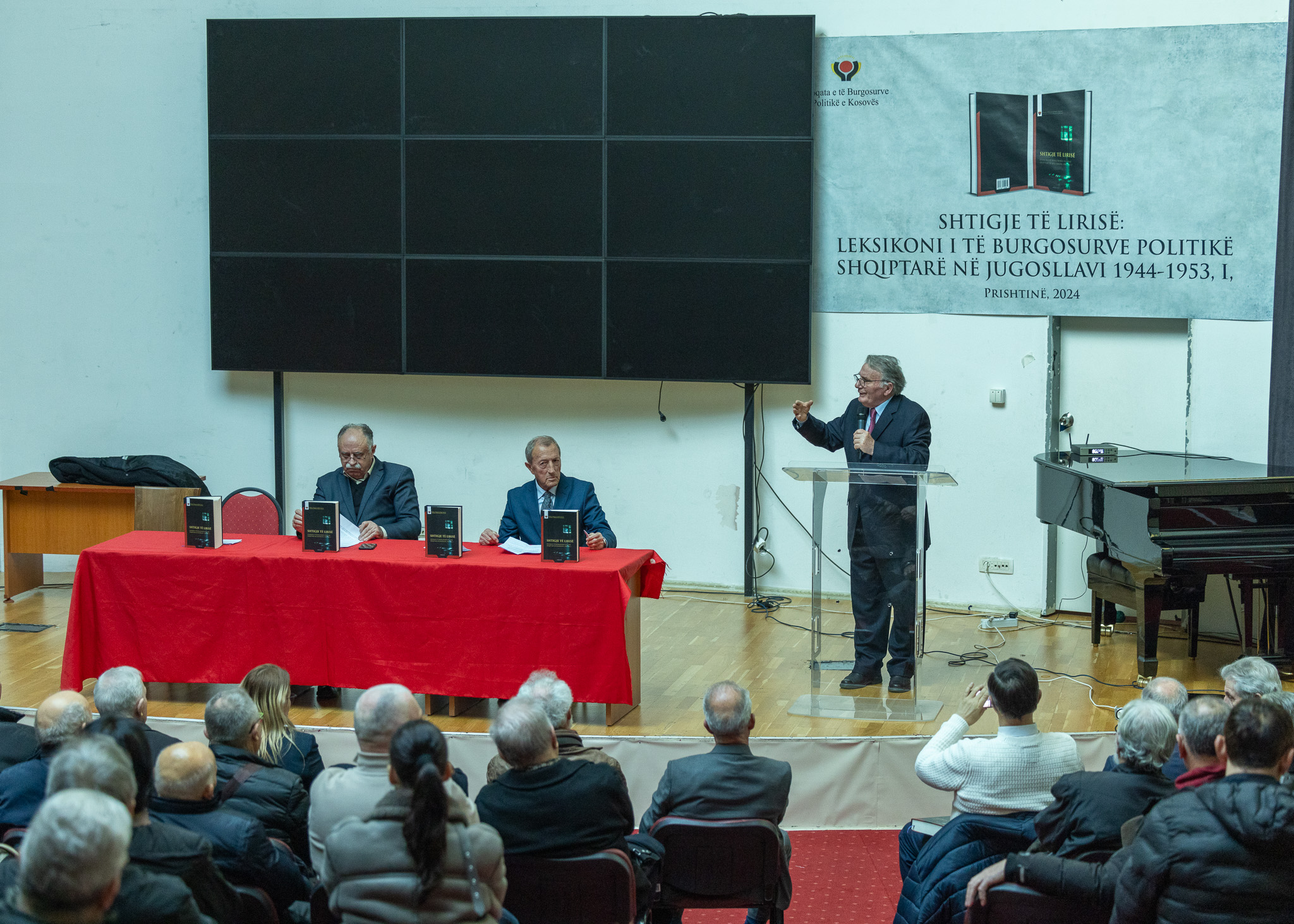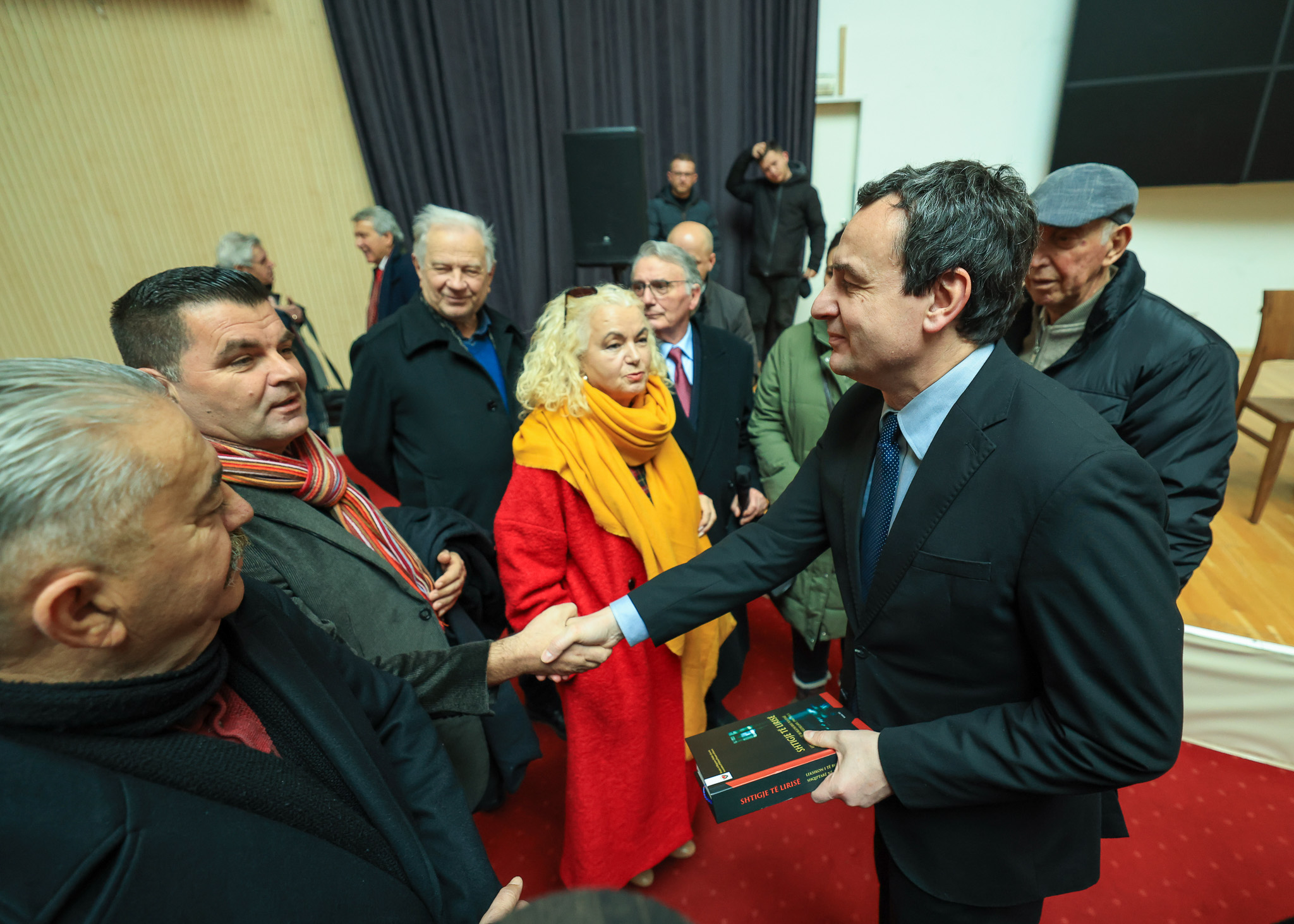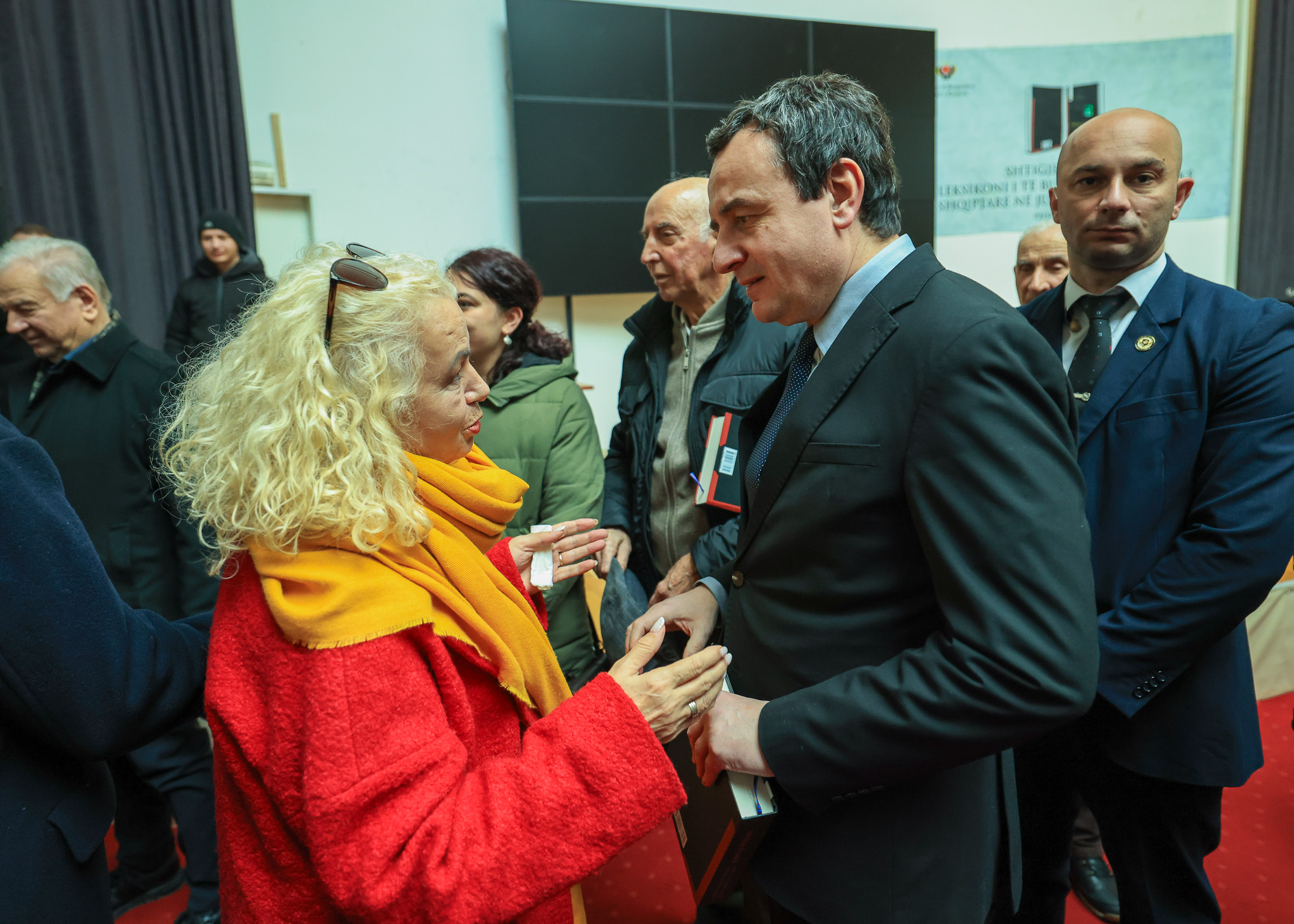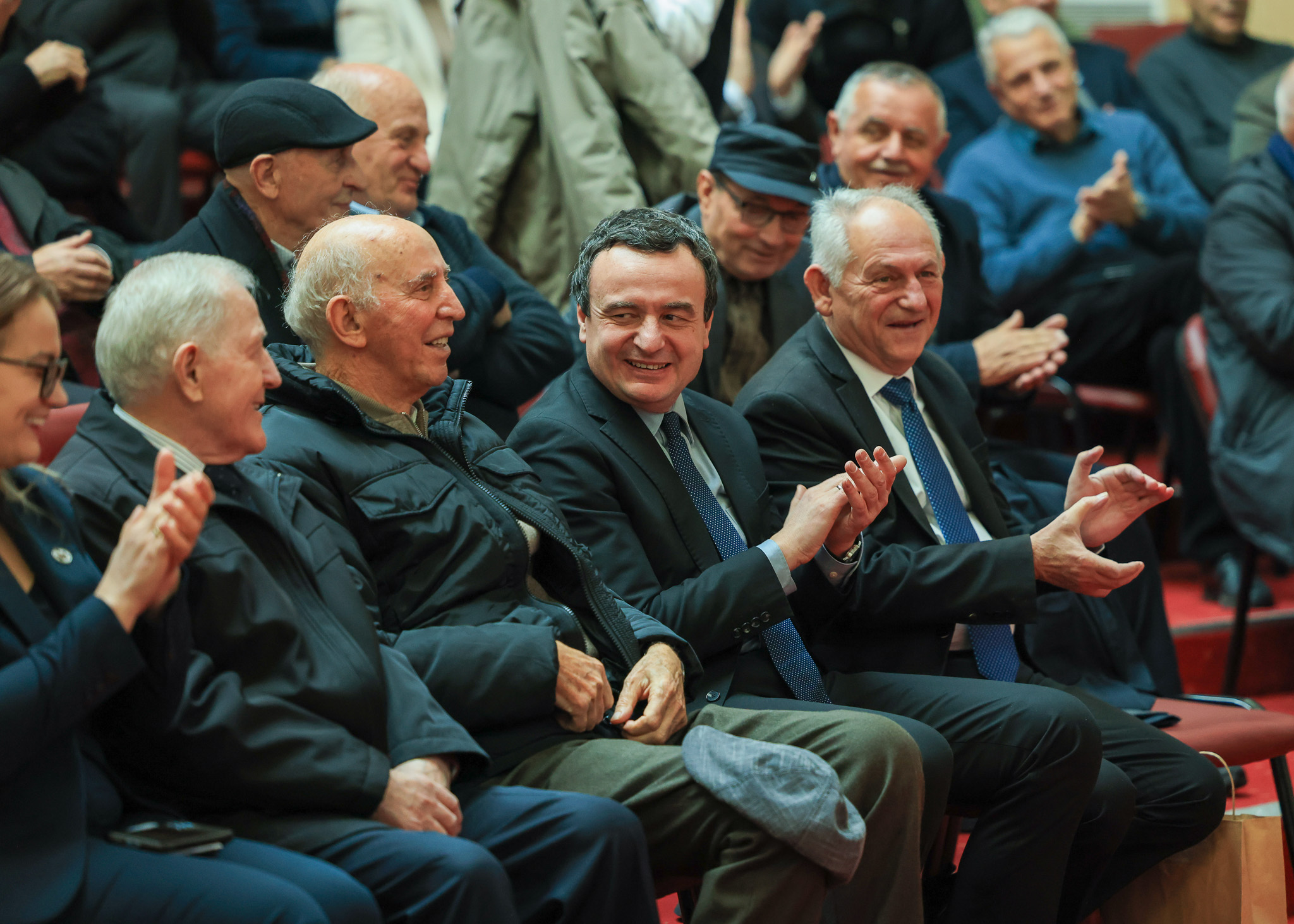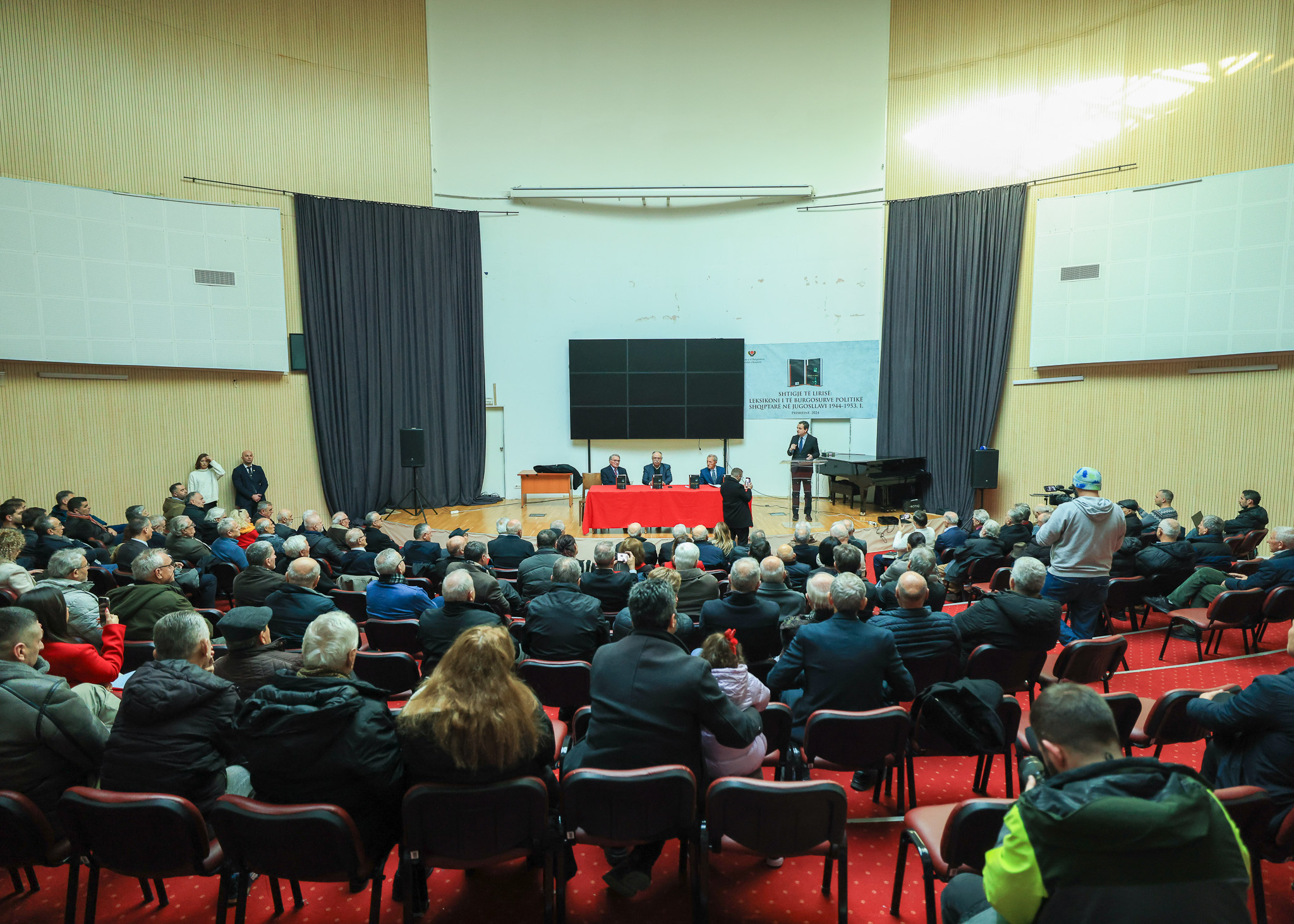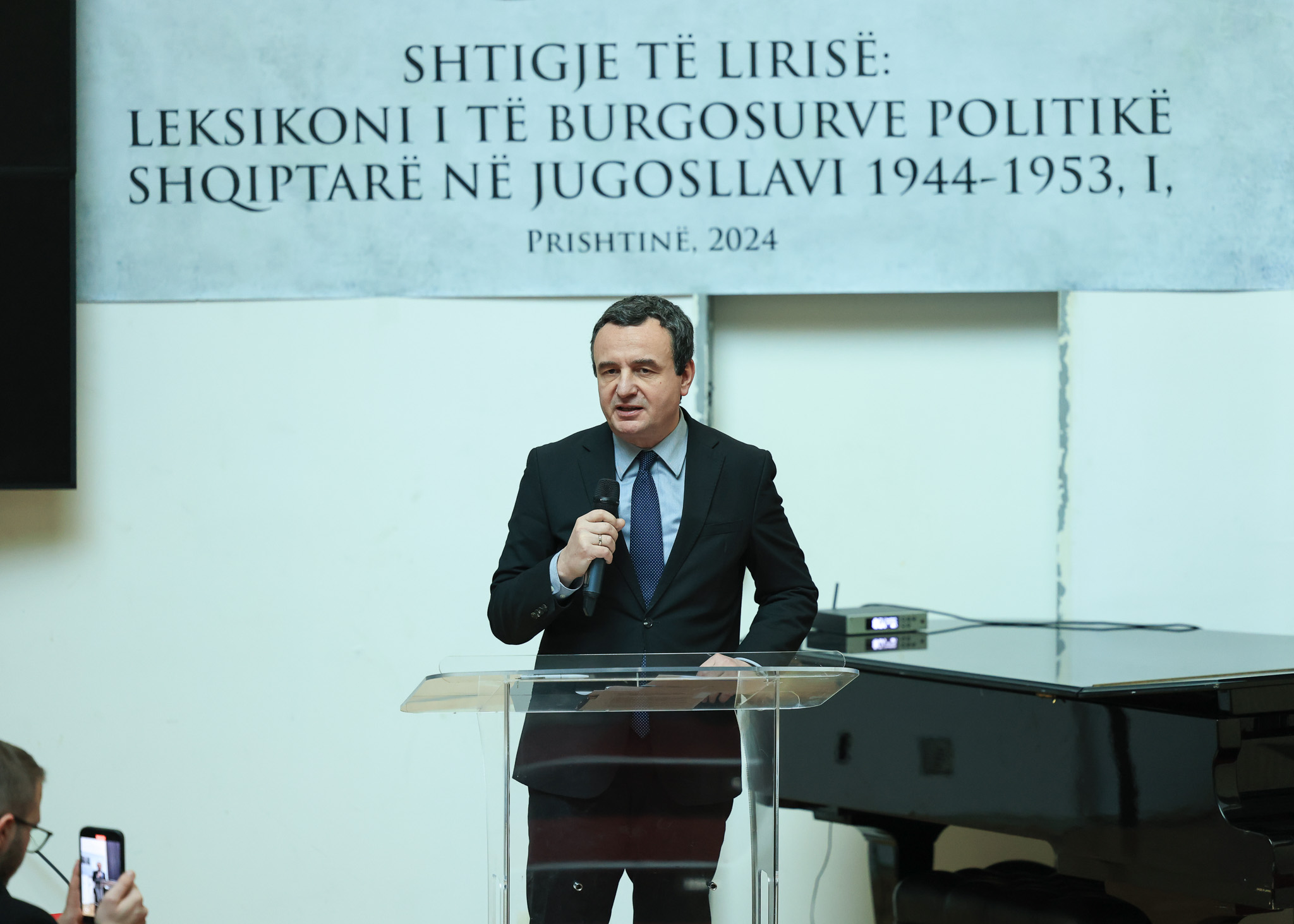Prishtina, 27 December 2024
The Prime Minister of the Republic of Kosovo, Albin Kurti, participated in the launch of the first volume of the work documenting political prisoners, now taking the form of a comprehensive and archival record titled “The Register of Freedom: Lexicon of Albanian Political Prisoners in Yugoslavia 1944–1953.” This event was held at the premises of the Institute of History in Prishtina.
“Political prisoners, not only in Kosovo, represent a unique political community and a special category among those who endure but also make history. I say this because political prisoners are individuals who, during certain periods of their lives, lost even their physical individual freedom for many years, ending up in prisons due to their political beliefs or the political ideas and projects they represented and worked to realize through various times and paths,” stated Prime Minister Kurti.
Ten days earlier, the Prime Minister attended the launch of the book “Prisoners of Conscience: Memoirs on Politics, Imprisonment, and Torture (1945–1999),” which compiled ten in-depth interviews with ten political prisoners. He expressed his satisfaction in seeing that, alongside the extensive corpus of works by former political prisoners in poetry and prose, memoirs, and a type of literature referred to as prison literature in recent years, there are now also publications of a more academic and scientific nature, such as the one being promoted today.
“I sincerely hope and wish that, as suggested by the concluding part of this book’s title, the first volume, the Associations of Political Prisoners of Kosovo will also manage to publish other volumes of this lexicon for political prisoners of subsequent decades, from Adem Demaci to Rexhep Malaj, from Fazli Grejcevci to Ukshin Hoti,” said the Prime Minister in his address.
He wished the attendees happy end-of-year holidays and a prosperous and good New Year for their families, colleagues, and community, thanking them for consistently inviting him to such events.
Prime Minister Kurti’s full speech:
Honorable Ms. Teuta Shala, Director of the Institute of History in Prishtina,
Honorable Mr. Shefki Sadiku, President of the Association of Former Political Prisoners of Kosovo,
Honorable Mr. Finan Kulaj, Former President of the Association,
Honorable Mr. Zymer Neziri, Folklore Scholar,
Honorable Members of the Assembly of the Republic, Professors, Students, and Activists of the National Cause,
Ladies and gentlemen,
And above all, and first and foremost, honorable and dear former political prisoners: Whenever I find myself among you at your events, I feel like an old warrior among other even older warriors, or among those who are called friends of the ideal. Because, as you know, as a former political prisoner who served time in the final years of the last period of political prisoners from Kosovo, I am certainly one of you. I used the word “warrior” to describe you as political prisoners because the prisons of Yugoslavia and Serbia, from 1944 onwards, and even earlier, where we endured our political imprisonments, were true battlegrounds for entire generations who struggled and fought for the freedom of Kosovo. These prisons were, in essence, frontlines long before the war erupted, where Albanian and progressive resistance clashed with the chauvinistic state of Serbia.
Political prisoners, not only in Kosovo, represent a unique political community and a special category among those who endure but also make history. I say this because political prisoners are individuals who, during certain periods of their lives, lost even their physical individual freedom for many years, ending up in prisons due to their political beliefs or the political ideas and projects they represented and worked to realize through various times and paths.
Just ten days ago, I attended the launch of the book “Prisoners of Conscience: Memoirs on Politics, Imprisonment, and Torture (1945–1999),” which compiled ten in-depth interviews with ten political prisoners, yet today, with great pleasure and curiosity, I came to witness the first volume of political prisoners’ documentation, now taking the form of a comprehensive and archival record for our generation and the generations to come, under the very meaningful title “The Register of Freedom: Lexicon of Albanian Political Prisoners in Yugoslavia 1944–1953”. When I saw these two years, the first thing that came to my mind was that 1944 is the year when Kosovo was liberated from German Nazis only to be reoccupied by Serbia and Yugoslavia, while 1953 is also an infamous year as it marks the so-called “gentleman’s agreement” between Tito and Kyprili for the expulsion of Albanians to Turkey.
I am very pleased to see that, alongside the extensive corpus of works by former political prisoners in poetry and prose, memoirs, and a type of literature referred to as prison literature in recent years, there are now also publications of a more academic and scientific nature, such as the one being promoted today.
This is because such publications, which organize the names of political prisoners in a lexicon, essentially an encyclopedia, serve as fundamental references for anyone who wants to know or study this history.
We need to collaboratively create literature for those who today, and in the future, will produce master’s theses and doctoral dissertations on the occupation of Kosovo, the resistance of the Albanian people, our liberation uprising, and so forth, with references that are both accessible and structured.
Thus, this book, as a standalone project, begins with the earliest period of political prisoners, immediately following World War II, from 1944 to 1953. I have the impression that being from an earlier period, the political prisoners of that time are less known and less remembered. Therefore, it is extremely valuable that we are starting with this phase now.
I sincerely hope and wish that, as suggested by the concluding part of this book’s title, the first volume, the Associations of Political Prisoners of Kosovo will also manage to publish other volumes of this lexicon for political prisoners of subsequent decades, from Adem Demaci to Rexhep Malaj, from Fazli Grejcevci to Ukshin Hoti.
Wishing you all happy year-end holidays and a prosperous and good 2025 for you, your families, colleagues, and the community, I thank you once again for never failing to invite me to such events, reminding one another that we are one, because we share the same ideals, for which we were once imprisoned.
Congratulations and thank you!

